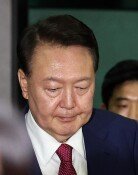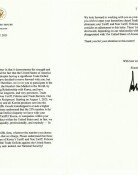Bush impact on Korea policy examined
Bush impact on Korea policy examined
Posted December. 15, 2000 13:30,
¡°There are a lot of things to do,¡± a highly placed Korean government official said when George W. Bush's presidential election was confirmed. Although Seoul government officials have said that even if the Republican administration is installed, there would be no changes in the framework of U.S. policies on North Korea. Yet in reality, they seem to feel burdened.
This is because the North Korea-U.S. and the South-North Korean relations have played supplementary roles in easing tension and inter-Korean reconciliation and cooperation, while exerting influence upon the South Korea-U.S. relationship.
A Republican platform adopted in July stipulates that North Korea remains outside of the international community and that the possibility still exists for war to break out on the Korean peninsula despite the mid-June inter-Korean summit in Pyongyang. This U.S. view diverges widely from the Seoul government's engagement policy with the North.
Experts view that Washington will not make an abrupt turn to a hard-line course, as it has contributed to fostering mood of detente on the Korean peninsula, but that the Republican administration looks certain to change its Korean policy in the long run, in light of its basic diplomatic policy line. Therefore, Seoul will have to be thoroughly prepared for this contingency, they noted.
In this connection, President Kim Dae-Jung plans to visit Washington shortly after President-elect Bush's inauguration Jan. 20 and discuss with the new U.S. president in order to coordinate bilateral relations and the joint policy on North Korean.
Prof. Kim Sung-Han of the Institute of Foreign Affairs and National Security asserted that the Bush administration would not abandon the existing engagement policy but that there is a high possibility that it would halt any unilateral aid to the North and demand thorough reciprocal actions from Pyongyang. Thus, this could raise the possibility of stalemating the Washington-Pyongyang relationship and bringing about a cold front in relations between the two Koreas.
Of course, it would take much time for the incoming Bush administration born with a narrow victory to map out new foreign policy guideline, and it is not in a position to ignore its allied Seoul government. Especially noting that there would be no viable alternative North Korean policy to replace the outgoing Clinton administration's engagement policy, it is widely agreed that the new administration will maintain the existing framework of its policy on North Korea for the time being.
Nonetheless, the Seoul government might entertain some psychological stress on its traditional inter-Korean rapprochement policy, since the Republican Party has pursued a policy of restraint rather than that accommodation. In addition, diplomatic brain trust in the Bush camp still harbors suspicions over changes in North Korea and maintains a hawkish stance over the North's development of weapons of mass destruction.
Prof. Kang Sung-Yun of Dongguk University, noting the importance of how much change Pyongyang comes up with during the U.S. power-transfer period, adding that for the short term, the inter-Korean rapprochement process could be rather accelerated.
The surest message for Pyongyang to show its willingness to change itself is North Korean Defense Commission Chairman Kim Jong-Il's return visit to Seoul and the faithful implementation of the Inter-Korean Joint Declaration. In this regard, the continued family reunion programs and the acceleration of the personnel and material exchanges between the two Koreas could be yardsticks to measure the North Korean resolve for change. If the North shows sincere endeavors in this regard, the Bush administration will, it is speculated, come up with some flexibility and elasticity in the establishment and operation of its North Korea policy.
Prof. Yoon Young-Kwan of Seoul National University said that since the Republican Party regarded China as a strategic competitor and vowed to push ahead with the National Missile Defense system, there would be a confrontation between Washington and Beijing, which might trigger negative impact on the Korean question. Therefore, Seoul needs a positive four-power diplomacy involving the United States, China, Russia and Japan, he advised.





![[단독]尹 “들여보내지 말라니까”…경호본부장 “관저 2정문 뚫리면 소총들고 나가라”](https://dimg.donga.com/c/138/175/90/1/wps/NEWS/IMAGE/2025/07/07/131931090.1.jpg)

